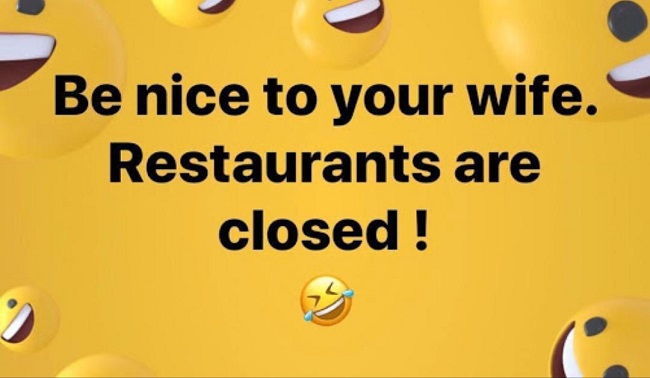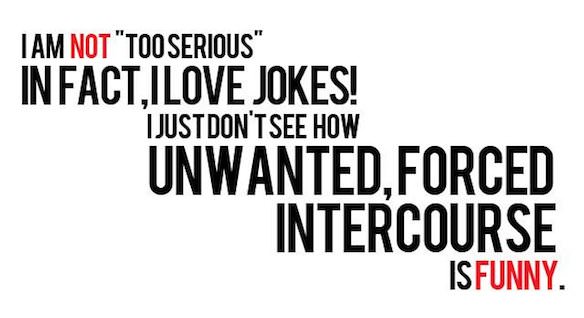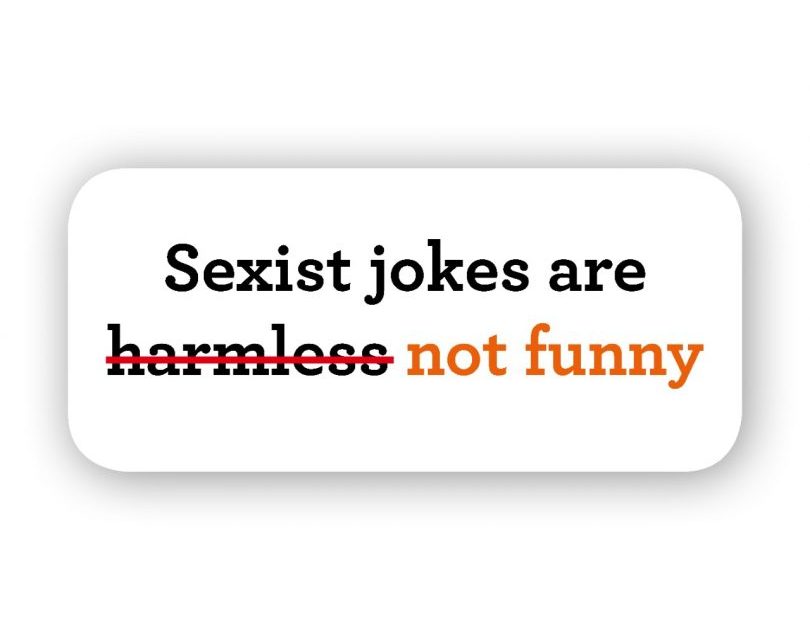Comedian: “I tried to keep the spice going in my relationship. Fellas you gotta keep the spice going. Man I try to do nice things with my lady. I like to take a shower with my woman, but I got a black woman, you just can’t jump into the shower with a black woman. She gotta wrap her hair first…”
Audience: “hahahahahaha”
Source: YouTube
Funny right? Well don’t feel bad if you’re a black woman reading this transcription from a comedy snippet. It’s generally known that black women are often not very enthusiastic about standing under the shower or swimming, because weaves and water do not mix. Women’s appearance is generally subjected to a lot of ridicule and this is a significant feature in a lot of comedy content. But when the laughter occurs so does hidden misogyny.
Women, as objects of patriarchy are subjected to a lot of sexism and sexist humour is one of them. Sexist jokes are often premised on stereotypes against women; that women are pretty & dumb, sexy, weak, beggarly, always nagging, emotional, gold diggers… you name it. “The semantics of a sexist joke is designed in such a way as to communicate the demeaning of women while trivializing sex discrimination under the disguise of “harmless fun” [Joke or Sexism? Misogynist Humour Condones Prejudice]. Sexist humour is not simply a joke, it is misogyny masquerading as what we’re told to believe is harmless fun and jokes.

Sexist humour is political. It inherently replicates the imbalanced power relations of the patriarchal order that males are the stronger, superior sex while females are weaker/inferior. In this unequal relationship there is the constant humiliation; the inferior, i.e. women who are constantly at the butt of jokes as it were. Power in this political game of gender is as always maintained for the superior group, i.e. men, often the orchestrators of such comedy. Sexist humour is part of sexism. It can potentially be a force that releases and legitimizes or tolerates prejudice often against women [Sexist Humor No Laughing Matter, Psychologist Says].
Sexist humour portrays misogyny that serves to objectify women, exploit or devalue women, and perpetuate violence against women. “In the Egyptian patriarchal society, even denial and apology were not deemed necessary as the target of such sexist jokes was women.” [It’s Not Just A Joke]. It is “institutionalized violence” against women.
Sexist jokes are a part of the culture of men, the culture of the world – of all of us really. Comedy is sexist and these sexist jokes are targeted at women – a major selling point – but this misogynoir is also employed by women comedians and women constitute at least part of the audience to this sexist linguistic onslaught on women. But when you’re born and raised in a patriarchal society that trades in misogyny, it is no wonder women internalize misogyny. [Internalized Misogyny as a Moderator of The Link Between Sexist Events and Women’s Psychological Distress]. The study also shows that “greater experiences of sexist events were associated with higher levels of psychological distress”. Perhaps if the socialization of women is altered from the norm, in which women incorporate masculine traits (often misogynistic) in their bid for acceptance or empowerment, then women would not be shooting themselves, nor would the reaction to being called out for sexist jokes be shouts of “women too…” with an eye roll.

These jokes about women’s hair, make up, boobs, dumbness, even rape have been normalized so much so that calling it out [Reasons People Enjoy Sexist Humour and Accept it as Inoffensive] is itself something of a subversive act.
Comedy has always had inequality at the heart of it; jokes were racist, sexist and homophobic. But with rising social change movements and the need for political correctness in the bid to operate more ethical and inclusive societies, there is a divide – good old comedy and ethical comedy, these two, threaten to annihilate each other in the comedy business.
Are the female audience too sensitive to sexist jokes or are sexist jokes offensive to women? There is a thin line which as difficult as it may be must be delineated.





